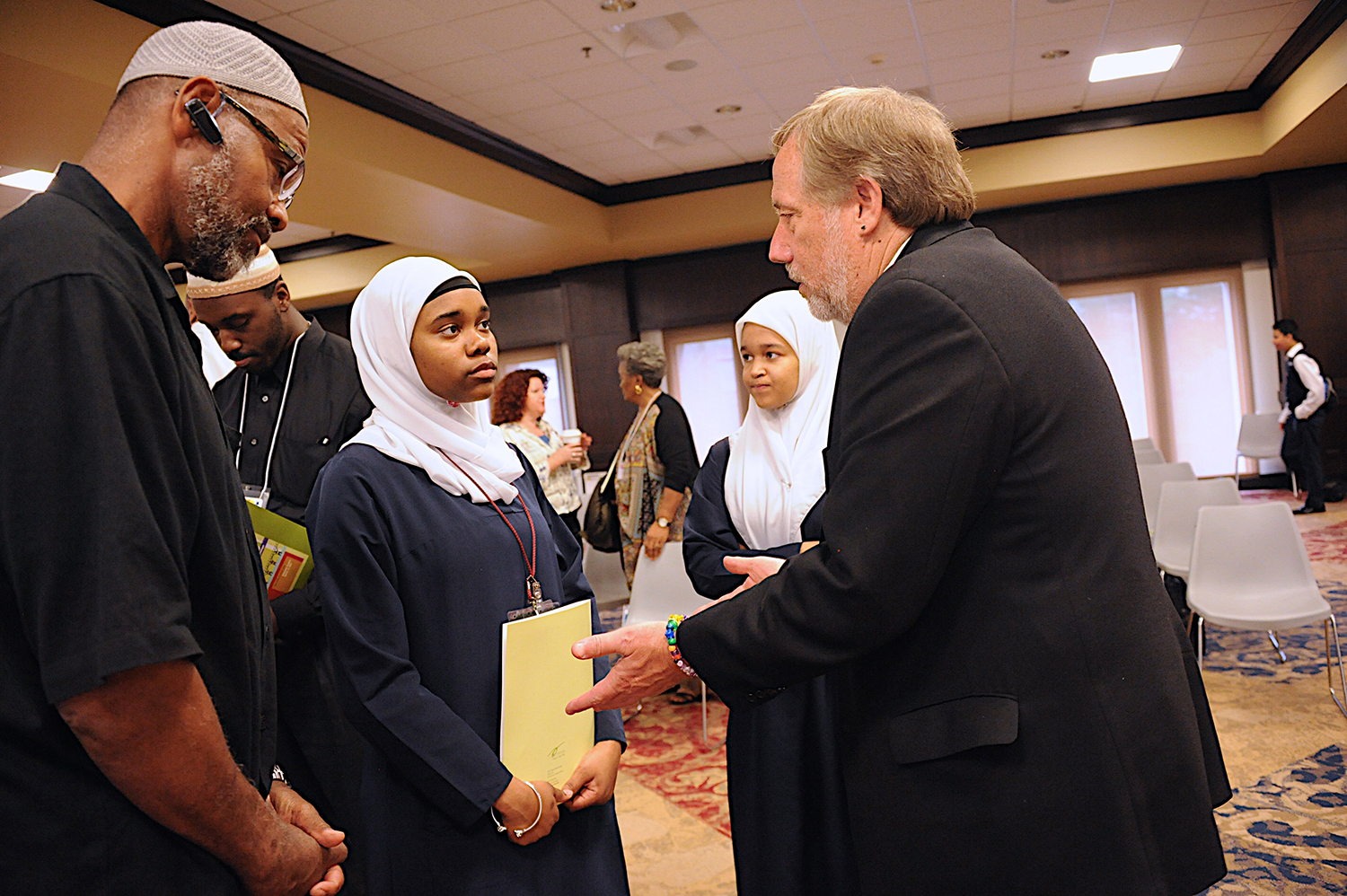Healing History
A program of Hope in the Cities
Healing History Conferences
The first Healing History conference took place in Caux, Switzerland in 2013. The vision of the event was to develop enhanced global civic engagement in an effort to dismantle structural racism and develop sustaining systems of equity. By actively building community, conference participants explored how communities develop trust, heal wounded memories and experiences, and create deep cultures of inclusion and just economies that are open to all persons. This conference was inspired by the dedicated work of many people over many years in many countries.
Conference speakers included Algernon Austin (Economic Policy Institute); Dilip D’Souza (journalist from Mumbai, India); Ed Ayers (President, University of Richmond); Marc Leyenberger (European Commission Against Racism and Intolerance); Marcello Palazzi (Progressio Foundation, Netherlands); Mee Moua (former Minnesota state senator and President/Executive Director of the Asian American Justice Center); Rajmohan Gandhi (journalist and author); Dr. David Williams (Harvard University School of Public Health); and Dr. Lisa Jackson Pulver (University of New South Wales, Australia).
The Purpose for Healing History 2013
Despite strides toward racial healing, the wounds of history, systemic racism, and white supremacy persist in many societies around the world, hindering efforts to build healthy, inclusive communities. Contemporary history shows that societies that discriminate on the basis of race are dysfunctional and inefficient. Results of discrimination include wasted human potential, economic and political distortion, and moral and psychological devastation.
We live in a time when our ability to be inclusive and fair to all in our rapidly changing societies is a test of our capacity to rise to the range of intersectional challenges that confront us (race, ethnicity, language, religion, gender, class, sex, politics, etc). Our social world benefits from the basic recognition of the dignity of each person in the human family. We know that this will not happen without a willingness to reach deeper into our own hearts, to seek healing and transformation. It will require a revolution in our personal relationships, our privileges and our priorities. It will require a fresh understanding of our social, communal and political concerns.
The organizers of the Healing History envisioned the following objectives for the conference:
Interpretations and understandings of how systemic racism and white supremacy has damaged and continues to damage societies and limit opportunity
Recognition in philosophy and practice of multiple, useable approaches to address the racial and intersectional wounds of history
Adoption of new methodologies and strategies to change discriminatory and inequitable structures
Promotion of varied policy-making that is built on creating sincere and active trust between divided communities
Forming partnerships across traditional divides to lead a sustained movement for healing and equity
Healing History 2015: MEMORY, LEGACY & SOCIAL CHANGE
In April 2015, the second Healing History conference was held in Richmond with the theme of “Memory, Legacy & Social Change”. This occasion marked 150 years since the legislative emancipation of enslaved Africans, the end of the U.S. Civil War in 1865 as well as the 50th anniversary of the Selma-to-Montgomery Civil Rights march, and the passing of the Voting Rights Act in 1965. Despite great strides toward racial healing, the wounds of history, systemic racism, and practices of deep inequality continue to hinder efforts to build healthy, inclusive communities in societies around the world.
The central question of the conference was: "How can we, as a global community, learn about effective ways to heal history, to understand the legacies that keep us apart, and to generate energy for building healthy and inclusive societies?” The conference was an effort to build trust and constructive partnerships across race, class, politics, and religion through honest and purposeful conversation. It made explicit the link between change in individuals’ attitudes and behaviors and change in the structures of society. The conference participants included racial healing and equity practitioners, scholars, grassroots leaders, students, representatives from business and government, and participants from South Africa, Mexico, U.K., Netherlands, Cambodia, Egypt, India, Canada, Brazil and cities across the U.S. who are grappling with similar issues.
The sessions focused on interconnected themes of local and international relevance:
Plenaries on connecting history, memory and social change to better address implicit bias, inequity, and create strategies for mobilization.
Breakout sessions on the role of museums and public history sites for education and healing; sustainable community wealth building and inclusive economies; identity, immigration and citizenship; the social determinants of health; the development of a literacy for racial justice that challenges white supremacy and white privilege; linking racial history, healing and systems change; the generation of digital and social media for constructive dialogue; and overcoming implicit bias and connected inequities in education, housing, criminal justice systems and other areas of public policy.
Interaction with the community through dialogues and visits to historical sites.
Networking opportunities with smaller groups to process topics more deeply through stories, personal reflection and relationship building.
Public forums were held at the Library of Virginia (“Living in the Aftermath of Slavery & Apartheid: Reflections from the U.S. and South Africa”), VCU Student Commons (“Overcoming Bias in the Criminal Justice System”), and the Grace Street Theater (“Understanding Implicit Bias”), as well as specific site visits to critical history institutions such as Sixth Mount Zion Baptist Church (in the heart of Jackson Ward founded by Rev. John Jasper, a former enslaved person in 1867); and Devil’s Half Acre, the African Burial Ground, and the Reconciliation Statue.
Supported by a grant from the W.K. Kellogg Foundation, the 2015 conference included national partners such as Everyday Democracy, Faith & Politics Institute, Poverty & Race Research Action Council, and the William Winter Institute for Racial Reconciliation.
The host committee for the conference included more than 35 institutions, organizations and bodies including the Virginia Center for Inclusive Communities, the Virginia Hispanic Chamber of Commerce, the Richmond Redevelopment and Housing Authority, First Baptist Church, Leadership Metro Richmond, the Richmond Times-Dispatch, the Greater Richmond Chamber of Commerce, Richmond Peace Education Center, Library of Virginia, Richmond City Council, Virginia Commonwealth University, YMCA of Greater Richmond, Virginia Union University, the Virginia General Assembly, Interfaith Council of Greater Richmond, the United States Senate (Timothy M. Kaine), Baptist Ministers Conference, Interfaith Center for Public Policy, Congregation Beth Ahabah, St. Francis Medical Center Bon Secours Health System, the Richmond Office of Multicultural Affairs, the Chesterfield County Board of Supervisors, #UntoldRVA, McGuire Woods LLP, Tawheed Prep High School, the American Civil War Museum, The Community Foundation, Virginia State University, Richmond Hill Community, Union Presbyterian Seminary, Richmond Public Schools, the University of Richmond, and St. Paul’s Episcopal Church.
Links to Additional Resources:
2013 Working Group Reports:













